Strictly Personal
I Went To The War Zone and Instead of Racism, I Saw Love by Reno Omokri
Published
2 years agoon

THE ALTERNATIVE
By Reno Omokri
I was moved by the plight of Nigerians who were affected by Putin’s invasion of Ukraine. The human suffering involved moved me. Knowing our government, we could not expect a quick resolution of their issue (although I must commend General Buhari for approving $8.5 million for their evacuation).
However, what troubled me the most were the continental wide outrage at the alleged racism that was said to be going on in Ukraine against Black Africans. I could not just watch helplessly.
I personally went to Hungary, Romania, Slovakia, Poland and The Czech Republic. I am a civilian. I am not in government. Nobody gave me a dime to do it. But I did it. Do you know why? Because it is not enough to use your mouth to complain, if you can’t use your hand to help!
Nigerians are trapped in Ukraine and its neighbouring nations because of the Russian invasion of Ukraine. Without understanding that in war times, you prioritise your own citizens, you sat in your living room, complaining of racism. I went there myself. In all of these places, the so called racists have been helping Nigerians. The Ukrainians had a policy in place for war time evacuation. Ukrainian women and children first, Ukrainian civilian men next, then foreigners. That is not racism. It is pragmatism.
If I were Nigerian President and Nigeria was fighting a war, I would do the same thing for my citizens. I will not prioritise foreigners over my own countrymen and women.
Complaining will never help Nigerians abroad or in Nigeria. What will help us and change our country for the better is if we take individual action to create the Nigeria we want to see. Talk is cheap. Actions are not!
Not only was I in Eastern Europe, by the grace of God, my team and I were able to raise money for to get stranded Nigerians out of the war zone.
Let me quickly say here that because I know my countrymen, it is important that I establish that nobody donated money to me to go to Eastern Europe. I went there to help. While I was there, I did a video appeal and asked my supporters to donate directly to Pastor Edward in Ukraine. I flew here with my money. I used my money to help. And I returned with my money. If anybody on Earth gave me a penny directly, I authorise them to expose me.
I am just being proactively transparent, because, like I said, I know my people!
Having said that, let me now explain to my fellow Black Africans what our unwarranted cries of racism will do to us. Yes, BBC, CNN, Al-Jazeera and MSNBC will carry such stories with glee, not because it is true, but because it is sensational and will drive traffic to their sites, which is what they need to command huge advertisement revenue.
But those stories were false and the Eastern Europeans are now more likely to be unwelcoming to Black Africans after this this crisis has blown over, because at a time when they faced a calamity, we did not show understanding. Rather, we whipped up false sentiments that had the capacity to turn the world against them at a time when they needed all the help they could get.
I ask my Black brothers how many Black Africans have been killed in Ukraine by the Ukrainians since this incident began? How many have had their property looted? How many have been attacked by mobs?
Not one single Black African.
Meanwhile, in South Africa, we have seen repeated waves of xenophobia and Black on Black racism, by South African Blacks against Black Africans from other African nations, whom they christen ‘Makwerekwere’.
In multiple waves of these xenophobic attacks, hundreds of Black Africans have either been killed, maimed, had their properties looted, or frustrated out of South Africa by their own fellow Black Africans, who are now raising a hue and cry against the beleaguered Ukrainians and their neighbours.
Within Nigeria, various Northern groups have given quit notices to people of Southern descent to leave their region, which was immediately reciprocated by some Southern groups. And we are the ones shouting that Ukraine is a racist country.
Meanwhile, back home we are more intolerant of each other than others are.
I give a good example. The largest church in Ukraine is the Embassy of the Blessed Kingdom of God for All Nations (also known as Embassy of God). It was founded by a Nigerian-Mr. Sunday Adelaja.
So, Ukrainians are so racist that they gathered and worshiped in large numbers at a church with Nigerian roots? What is more precious to a man than his connection to God? Where are human beings most open and sincere? Of course that is in a house of worship.
Now, imagine that the Embassy of the Blessed Kingdom of God for All Nations wants to help poor people, who would they help first? Members or non members? Mind you, scripture says “Therefore, as we have opportunity, let us do good to all, especially to those who are of the household of faith”-Galatians 6:10.
So, even Scripture and common sense dictates that the church should prioritise its own members first before others. If they do that, is that discrimination? Of course not.
Then why would we as Black Africans accuse Ukraine of racism in their weakest hour and time of need, when they need good media the most, simply because they prioritised the evacuation of their own citizens before foreigners? It would have been delinquent of their government to prioritise foreigners over their own citizens.
No serous country would ever doing. But it is us. We must be emotional, rather than rational. We must antagonise rather than empathise. We must react, rather than pro-act. And we wonder why we are where and how we are!
What we have done to Ukraine and Eastern Europe is not yet clear to us. But the war will be over. The dust will settle. It is only a matter of time. And when that time comes, they will remember how we stoked the media against them in their darkest hour.
Sadly, we Black Africans have a victim mentality. We need to change that mindset. We need to acquire a victor’s mindset. Yes, racism does exist. But when we cry wolf even where there is clearly no wolf, time will come when nobody will listen to us, even when the real wolf comes.
Reno’s Nuggets
Dear wife,
Your husband is not irresponsible because he refuses to carry your siblings and your parents welfare on his head. Rather, it is your father and mother who are HIGHLY irresponsible for collecting bride price and still want your husband to collect bills! The ideal situation is for your husband to use his money to care for you and your children. However, if he has extra, then he should invest for the future, not on your parents and siblings. Marry and leave your father’s house. Don’t extend your father’s house to your husband’s house!
#RenosNuggets #FreeLeahSharibu
Prof. Ibiyemi Olatunji-Bello, Vice-Chancellior, LASU: My Vision for LASU Is Unique and Focused
Prof. Ibiyemi Ibilola Olatunji Bello is an eminent scholar of great pedigree, reputed to have won several laurels, breaking records of attaining great heights. For her, it has been a record of first among equals all the way. She is the first professor of Physiology in the Lagos State University College of Medicine (LASUCOM), having been an associate professor at the University of Lagos, College of Medicine between 2005 and October 1 2007. She was the first female acting vice-chancellor of LASU between July 2010 and October 2011. She was also the first female deputy vice-chancellor of the university between December 2008 and December 2010. She was the first substantive head of the Department of Physiology Lagos State College of Medicine between October 2007 and December 2008. In addition, she was the pioneering director of Lagos State University Directorate of Advancement (LASUDA). Prof Olatunji-Bello grew up in Lagos under excellent parenthood. She attended the Anglican Grammar School in Surulere between 1970 and 1974 and later Lagos Anglican Grammar School also in Surulere. She also attended the Methodist Girls High School in Yaba and Lagos State College of Science and Technology Ikosi Campus for her ‘A’ Levels in 1982. After graduating From the University of Ibadan with a B.SC Hons degree in Physiology in 1985, she proceeded to the University of Lagos for her National Youth Service Corps (NYSC). Apart from her victorious intellectual exploits leading to being awarded an MSC degree, she also deepened her academic and research breakthrough leading to being awarded a PhD at the University of Lagos in 1998. For so many years, she has been so versatile in the issues regarding leadership and management configuration perspectives in LASU, having been the state government’s representative in the university’s Governing Council between 2004 and 2008 and Senate representative in the council. In 2012, she was nominated by the National Universities Commission (NUC) to attend Course 34 at the National Institute for Policy and Strategic Studies in Kuru Plateau State. She was awarded a ‘Member of the National Institute’ (MNI) Certificate. She was awarded a fellowship by the Physiological Society in the United Kingdom (UK) in 2007, which led to a similar fellowship of the Physiological Society of Nigeria. During an interview with THISDAY newspaper on the commemorative edition on Women’s International Day 2022, she bares her mind on many issues, including the takeaway lessons from the race to become LASU vice-chancellor. Excerpt:
In retrospect, how would you describe your growing up years and the impact of your upbringing?
Growing up was interesting. I was brought up to be a very curious person about my environment. I am also a goal-getter; when I’m determined to do something, I will do it. By the grace of God, I rose very fast in life, and in fact, I seem to be in a hurry to achieve everything. Sometimes, I ask myself: ‘where are you hurrying to’? Everything about my life happened so fast. I went to secondary school at age nine going to 10. I left secondary school when I was 15. When I graduated from university, I was barely 21 years. It was as if I needed to be in a hurry to get all those things done. My vision was to be a professor before the age of 40, but I couldn’t make it. I became a professor at the age of 43, which was still ok by all standards. Regarding my childhood, I had very influential parents but God-fearing. And they brought us up well. I became born-again in my secondary school days. I love God and serve God all the time. By the time I entered the university, I didn’t think I had free time. I was focused on myself and my goal of becoming a professor. It wasn’t as if I wanted to try my luck. From day one, I knew I was going to get a PhD. I went to UNILAG for my National Youth Service Corps (NYSC) after I had graduated from the University of Ibadan. Before I got to UNILAG, a lot had been discussed about me based on recommendations and reports from the people at UI. So everybody was interested in meeting me. However, when I got there, I was just myself. Although we were two serving at UNILAG then, I was the only one retained initially on a part-time Demonstratorship. While at UNILAG, I did my master’s and registered for my PhD. And immediately there was an opening, I was employed on a full-time basis. So my trajectory was quite fast. However, while I was in a hurry during my growing up years and as a young adult, God used this vice-chancellor’s race to stabilise me. From lecturer to HOD to professor to DVC to acting VC, everything happened in quick succession, but becoming a VC took time, and I thank God for it.
Has there been any time during your earlier career that you have been limited by gender? Or, you couldn’t get something because you are a woman?
I never saw myself as a woman. I saw myself as a colleague with my contemporaries. From my days in school to work, everyone was my colleague. We discussed everything together, shared jokes and did things as colleagues. For the guys, I knew their girlfriends, and they knew mine. Their girlfriends know me. It was all like a big family. When they have challenges, they inform me and vice versa. We usually gist during the practical classes, so no limitation. But I realised later that I’m in a male-dominated environment. It dawned on me that I have to publish or perish, and if I have to publish, I have to do as much as twice my male counterparts. As a married woman, I do my school work, take my children to school and pick them up. I make sure dinner is ready for everybody in the evening and get the children ready for school for the following day. In those days, the computer was not as prevalent today. Hence, we kept writing and writing. That was the situation. From the onset, I never saw myself as a woman, but while rising up, it dawned on me that I was in a male donated profession. And I have to prove a point. And I thank God I was able to be a challenge to others.
Being a professor at 43 years is a feat. Many could have fallen off the line along the way. What did you do differently that helped you to succeed over the years. What were your strategies, the philosophy, or your benchmark growing to the top level?
As I said earlier, I worked twice as hard as my colleagues. As a young academic, I had mentors and role models. I would always go to the senior ones and ask, ‘Prof, how did you do these things?’ And at meetings, I was always talking. I believe that as intellectuals, we should debate things. Whether your point is taken or not. You should debate it. In the end, the person that has larger support would have his way. I also saw University meetings and Conferences as a way of expressing myself. Even now, I will always say my mind. I may not win the argument, but it will be on record that I have said my mind. You must not shy away from speaking the truth; it may not pay at a particular time, but in the long run, when you look back, history will justify you. So I had role models who encouraged me. Mention can be made of Prof. Shofola, Deputy Vice-Chancellor University of Lagos. Prof. Tolu Odugbemi, former Vice-Chancellor, University of Lagos. Former Vice-Chancellor of Ondo State University of Science and Technology. Also President of the National Postgraduate Medical College. Prof. Odugbemi would always ask me, ‘Yemi, bring your CV’, and I will give it to him. Three months later, he will ask again, and I will say, but I gave you three months ago. And because I knew he would ask of me every three months, I would make sure that there was something new added to the CV before he would ask for my CV again. That was the push. Prof. Sofola will tell me, ‘if we push you, you will move’. They were pushing me because they had great belief in me. Some other people would have run away, but I did not.
What are the lessons regarding the contest in your appointment as LASU vice-chancellor?
There are two lessons. One, believe in yourself. The vision I had for the university was the same I submitted during my first contest for the position. People will say go and look at the way they did this or that. It is not done this way. They will ask me to go and read other people’s visions and model mine after theirs. But I realised that what I have is better than what they are saying, and I stuck to it. The only thing I added to the first one I did was the decision to create new faculties. It was the same vision during the first, second and third contests. I would have entered into the Guinness book of records as the only person that vied for the same position five times. The second lesson is never to give up once you believe in yourself. The competitions were stiff, and the oppositions were strong, but I continued, and I never gave up.
I have said it in different churches where I have given my testimonies that I was focused mainly on becoming LASU vice-chancellor. I never applied to any other university. It was not that I was desperate to become vice-chancellor of LASU, but I was called (by God) to be vice-chancellor of LASU, so I never attempted to be vice-chancellor elsewhere. Most of the others that contested with me since 2011 have gone somewhere else, but I am here. I’m maybe the only person who didn’t go elsewhere despite seeing many opportunities.
You may like
Strictly Personal
This Sudan war is too senseless; time we ended it, By Tee Ngugi
Published
1 day agoon
April 28, 2024
Why are the Sudanese Armed Forces (SAF) and the paramilitary Rapid Support Forces (RPF) engaged in a vicious struggle? It is not that they have ideological, religious or cultural differences.
Not that people should fight because of these kinds of differences, but we live in a world where social constructions often lead to war and genocide. It is not that either side is fighting to protect democracy. Both sides were instruments of the rapacious dictatorship of Omar el-Bashir, who was overthrown in 2019.
Both are linked to the massacres in Darfur during Bashir’s rule that led to his indictment by the International Criminal Court for crimes against humanity. They both stood by as ordinary, unarmed people took to the streets and forced the removal of the Bashir regime.
None of these entities now fighting to the last Sudanese citizen has any moral authority or constitutional legitimacy to claim power. They both should have been disbanded or fundamentally reformed after the ouster of Bashir.
The SAF and the RSF are fighting to take over power and resources and continue the repression and plunder of the regime they had supported for so long. And, as you can see from news broadcasts, they are both well-versed in violence and plunder.
Since the fighting began in 2023, both sides have been accused of massacres that have left more than 30,000 people dead. Their fighting has displaced close to 10 million people. Their scramble for power has created Sudan’s worst hunger crisis in decades. Millions of refugees have fled into Chad, Ethiopia and South Sudan.
The three countries are dubious places of refuge. Chad is a poor country because of misrule. It also experiences jihadist violence. Ethiopia is still simmering with tensions after a deadly inter-ethnic war.
And South Sudan has never recovered from a deadly ethnic competition for power and resources. African refugees fleeing to countries from which refugees recently fled or continue to flee sums up Africa’s unending crisis of governance.
Africa will continue to suffer these kinds of power struggles, state failure and breakdown of constitutional order until we take strengthening and depersonalising our institutions as a life and death issue. These institutions anchor constitutional order and democratic process.
Strong independent institutions would ensure the continuity of the constitutional order after the president leaves office. As it is, presidents systematically weaken institutions by putting sycophants and incompetent morons in charge. Thus when he leaves office by way of death, ouster or retirement, there is institutional collapse leading to chaos, power struggles and violence. The African Union pretends crises such as the one in Sudan are unfortunate abnormally. However, they are systemic and predictable. Corrupt dictatorships end in chaos and violence.
Tee Ngugi is a Nairobi-based political commentator.
Strictly Personal
Air Peace, capitalism and national interest, By Dakuku Peterside
Published
2 weeks agoon
April 16, 2024
Nigerian corporate influence and that of the West continue to collide. The rationale is straightforward: whereas corporate activity in Europe and America is part of their larger local and foreign policy engagement, privately owned enterprises in Nigeria or commercial interests are not part of Nigeria’s foreign policy ecosystem, neither is there a strong culture of government support for privately owned enterprises’ expansion locally and internationally.
The relationship between Nigerian businesses and foreign policy is important to the national interest. When backing domestic Nigerian companies to compete on a worldwide scale, the government should see it as a lever to drive foreign policy, and national strategic interest, promote trade, enhance national security considerations, and minimize distortion in the domestic market as the foreign airlines were doing, boost GDP, create employment opportunities, and optimize corporate returns for the firms.
Admitted nations do not always interfere directly in their companies’ business and commercial dealings, and there are always exceptions. I can cite two areas of exception: military sales by companies because of their strategic implications and are, therefore, part of foreign and diplomatic policy and processes. The second is where the products or routes of a company have implications for foreign policy. Air Peace falls into the second category in the Lagos – London route.
Two events demonstrate an emerging trend that, if not checked, will disincentivize Nigerian firms from competing in the global marketplace. There are other notable examples, but I am using these two examples because they are very recent and ongoing, and they are typological representations of the need for Nigerian government backing and support for local companies that are playing in a very competitive international market dominated by big foreign companies whose governments are using all forms of foreign policies and diplomacy to support and sustain.
The first is Air Peace. It is the only Nigerian-owned aviation company playing globally and checkmating the dominance of foreign airlines. The most recent advance is the commencement of flights on the Lagos – London route. In Nigeria, foreign airlines are well-established and accustomed to a lack of rivalry, yet a free-market economy depends on the existence of competition. Nigeria has significantly larger airline profits per passenger than other comparable African nations. Insufficient competition has resulted in high ticket costs and poor service quality. It is precisely this jinx that Air Peace is attempting to break.
On March 30, 2024, Air Peace reciprocated the lopsided Bilateral Air Service Agreement, BASA, between Nigeria and the United Kingdom when the local airline began direct flight operations from Lagos to Gatwick Airport in London. This elicited several reactions from foreign airlines backed by their various sovereigns because of their strategic interest. A critical response is the commencement of a price war. Before the Air Peace entry, the price of international flight tickets on the Lagos-London route had soared to as much as N3.5 million for the economy ticket. However, after Air Peace introduced a return economy class ticket priced at N1.2 million, foreign carriers like British Airways, Virgin Atlantic, and Qatar Airways reduced their fares significantly to remain competitive.
In a price war, there is little the government can do. In an open-market competitive situation such as this, our government must not act in a manner that suggests it is antagonistic to foreign players and competitors. There must be an appearance of a level playing field. However, government owes Air Peace protection against foreign competitors backed by their home governments. This is in the overall interest of the Nigerian consumer of goods and services. Competition history in the airspace works where the Consumer Protection Authority in the host country is active. This is almost absent in Nigeria and it is a reason why foreign airlines have been arbitrary in pricing their tickets. Nigerian consumers are often at the mercy of these foreign firms who lack any vista of patriotism and are more inclined to protect the national interest of their governments and countries.
It would not be too much to expect Nigerian companies playing globally to benefit from the protection of the Nigerian government to limit influence peddling by foreign-owned companies. The success of Air Peace should enable a more competitive and sustainable market, allowing domestic players to grow their network and propel Nigeria to the forefront of international aviation.
The second is Proforce, a Nigerian-owned military hardware manufacturing firm active in Rwanda, Chad, Mali, Ghana, Niger, Burkina Faso, and South Sudan. Despite the growing capacity of Proforce in military hardware manufacturing, Nigeria entered two lopsided arrangements with two UAE firms to supply military equipment worth billions of dollars , respectively. Both deals are backed by the UAE government but executed by UAE firms.
These deals on a more extensive web are not unconnected with UAE’s national strategic interest. In pursuit of its strategic national interest, India is pushing Indian firms to supply military equipment to Nigeria. The Nigerian defence equipment market has seen weaker indigenous competitors driven out due to the combination of local manufacturers’ lack of competitive capacity and government patronage of Asian, European, and US firms in the defence equipment manufacturing sector. This is a misnomer and needs to be corrected.
Not only should our government be the primary customer of this firm if its products meet international standards, but it should also support and protect it from the harsh competitive realities of a challenging but strategic market directly linked to our national military procurement ecosystem. The ability to produce military hardware locally is significant to our defence strategy.
This firm and similar companies playing in this strategic defence area must be considered strategic and have a considerable place in Nigeria’s foreign policy calculations. Protecting Nigeria’s interests is the primary reason for our engagement in global diplomacy. The government must deliberately balance national interest with capacity and competence in military hardware purchases. It will not be too much to ask these foreign firms to partner with local companies so we can embed the technology transfer advantages.
Our government must create an environment that enables our local companies to compete globally and ply their trades in various countries. It should be part of the government’s overall economic, strategic growth agenda to identify areas or sectors in which Nigerian companies have a competitive advantage, especially in the sub-region and across Africa and support the companies in these sectors to advance and grow to dominate in the African region with a view to competing globally. Government support in the form of incentives such as competitive grants ,tax credit for consumers ,low-interest capital, patronage, G2G business, operational support, and diplomatic lobbying, amongst others, will alter the competitive landscape. Governments and key government agencies in the west retain the services of lobbying firms in pursuit of its strategic interest.
Nigerian firms’ competitiveness on a global scale can only be enhanced by the support of the Nigerian government. Foreign policy interests should be a key driver of Nigerian trade agreements. How does the Nigerian government support private companies to grow and compete globally? Is it intentionally mapping out growth areas and creating opportunities for Nigerian firms to maximize their potential? Is the government at the domestic level removing bottlenecks and impediments to private company growth, allowing a level playing field for these companies to compete with international companies?
Why is the government patronising foreign firms against local firms if their products are of similar value? Why are Nigerian consumers left to the hands of international companies in some sectors without the government actively supporting the growth of local firms to compete in those sectors? These questions merit honest answers. Nigerian national interest must be the driving factor for our foreign policies, which must cover the private sector, just as is the case with most developed countries. The new global capitalism is not a product of accident or chance; the government has choreographed and shaped it by using foreign policies to support and protect local firms competing globally. Nigeria must learn to do the same to build a strong economy with more jobs.
EDITOR’S PICK
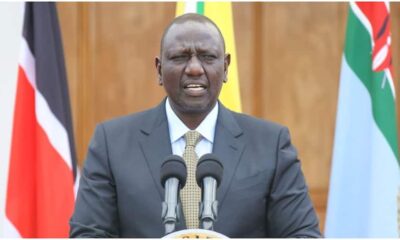

African leaders want record World Bank financing to address climate change
Ahead of a World Bank conference scheduled for later this year, African leaders on Monday called for rich countries to...
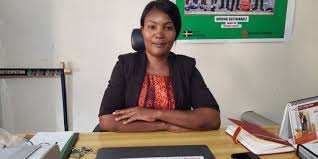

Conservationist, Kearns, names intolerance and digital media abuse as threats to media freedom
Nsama Kearns, the Executive Director of Care for Nature, speaks on the indispensable role of a free media in society....
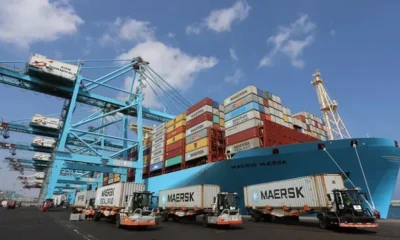

Nigeria gets $600 million investment from Danish firm Moller-Maersk
Nigeria’s presidency said on Sunday that President Bola Tinubu had secured an investment of $600 million from Danish shipping and...


Bolt Kenya teams up with M-KOPA to launch electric motorcycles
In a bid to improve driver earnings and combat climate change, ride-hailing platform, Bolt Kenya, has struck a partnership with...
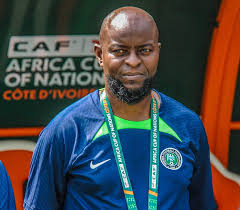

Nigeria’s football federation appoints Finidi George as Super Eagles coach
The Nigeria Football Federation (NFF) has approved the appointment of former international, Finidi George, as the new head coach of...
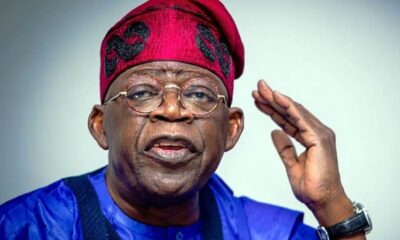

I saved Nigeria from bankruptcy by removing fuel subsidy— Tinubu
Nigerian President, Bola Tinubu, on Sunday, boasted that he saved Nigeria from going bankrupt by removing fuel subsidy on his...


Behind the News: All the backstories to our major news this week
Over the past week, there were lots of important stories from around the African continent, and we served you some...
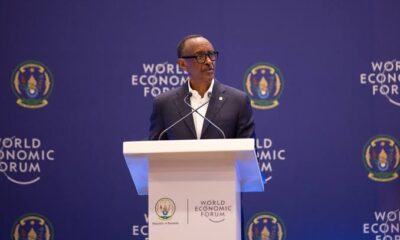

Video: How Rwanda is driving Ai revolution in Africa
In this video, the Managing Director of Rwanda’s Centre for the Fourth Industrial Revolution, Crystal Rugege, speaks on the country’s...


This Sudan war is too senseless; time we ended it, By Tee Ngugi
Why are the Sudanese Armed Forces (SAF) and the paramilitary Rapid Support Forces (RPF) engaged in a vicious struggle? It...
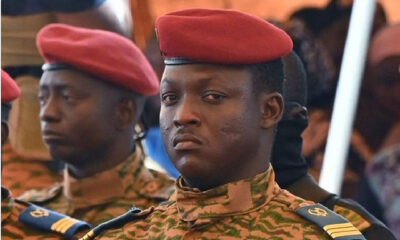

Burkina Faso investigating reports of northern killings
A government spokesman has revealed that Burkina Faso is looking into reports that 223 people were killed by the Burkinabe...
Trending
-

 Behind the News1 day ago
Behind the News1 day agoBehind the News: All the backstories to our major news this week
-

 Politics1 day ago
Politics1 day agoBurkina Faso investigating reports of northern killings
-
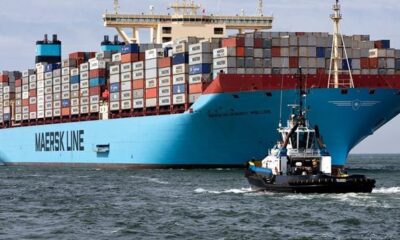
 Musings From Abroad2 days ago
Musings From Abroad2 days agoNigeria loses $9.2 billion to foreign shipowners
-

 VenturesNow1 day ago
VenturesNow1 day agoNigeria: Bureaux De Change operators to harmonise retail FX market


